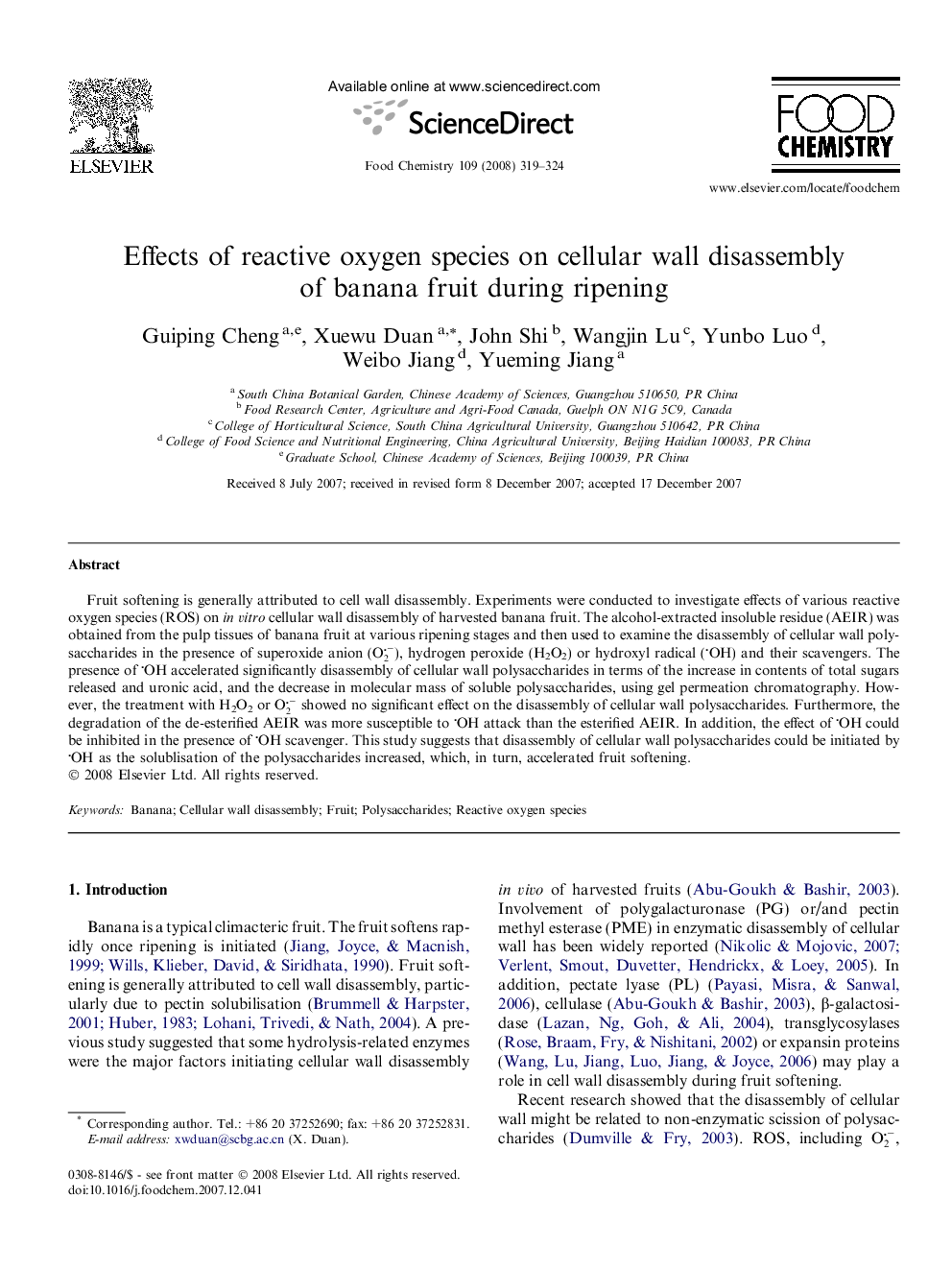| Article ID | Journal | Published Year | Pages | File Type |
|---|---|---|---|---|
| 1188356 | Food Chemistry | 2008 | 6 Pages |
Fruit softening is generally attributed to cell wall disassembly. Experiments were conducted to investigate effects of various reactive oxygen species (ROS) on in vitro cellular wall disassembly of harvested banana fruit. The alcohol-extracted insoluble residue (AEIR) was obtained from the pulp tissues of banana fruit at various ripening stages and then used to examine the disassembly of cellular wall polysaccharides in the presence of superoxide anion (O2-), hydrogen peroxide (H2O2) or hydroxyl radical (OH) and their scavengers. The presence of OH accelerated significantly disassembly of cellular wall polysaccharides in terms of the increase in contents of total sugars released and uronic acid, and the decrease in molecular mass of soluble polysaccharides, using gel permeation chromatography. However, the treatment with H2O2 or O2- showed no significant effect on the disassembly of cellular wall polysaccharides. Furthermore, the degradation of the de-esterified AEIR was more susceptible to OH attack than the esterified AEIR. In addition, the effect of OH could be inhibited in the presence of OH scavenger. This study suggests that disassembly of cellular wall polysaccharides could be initiated by OH as the solublisation of the polysaccharides increased, which, in turn, accelerated fruit softening.
